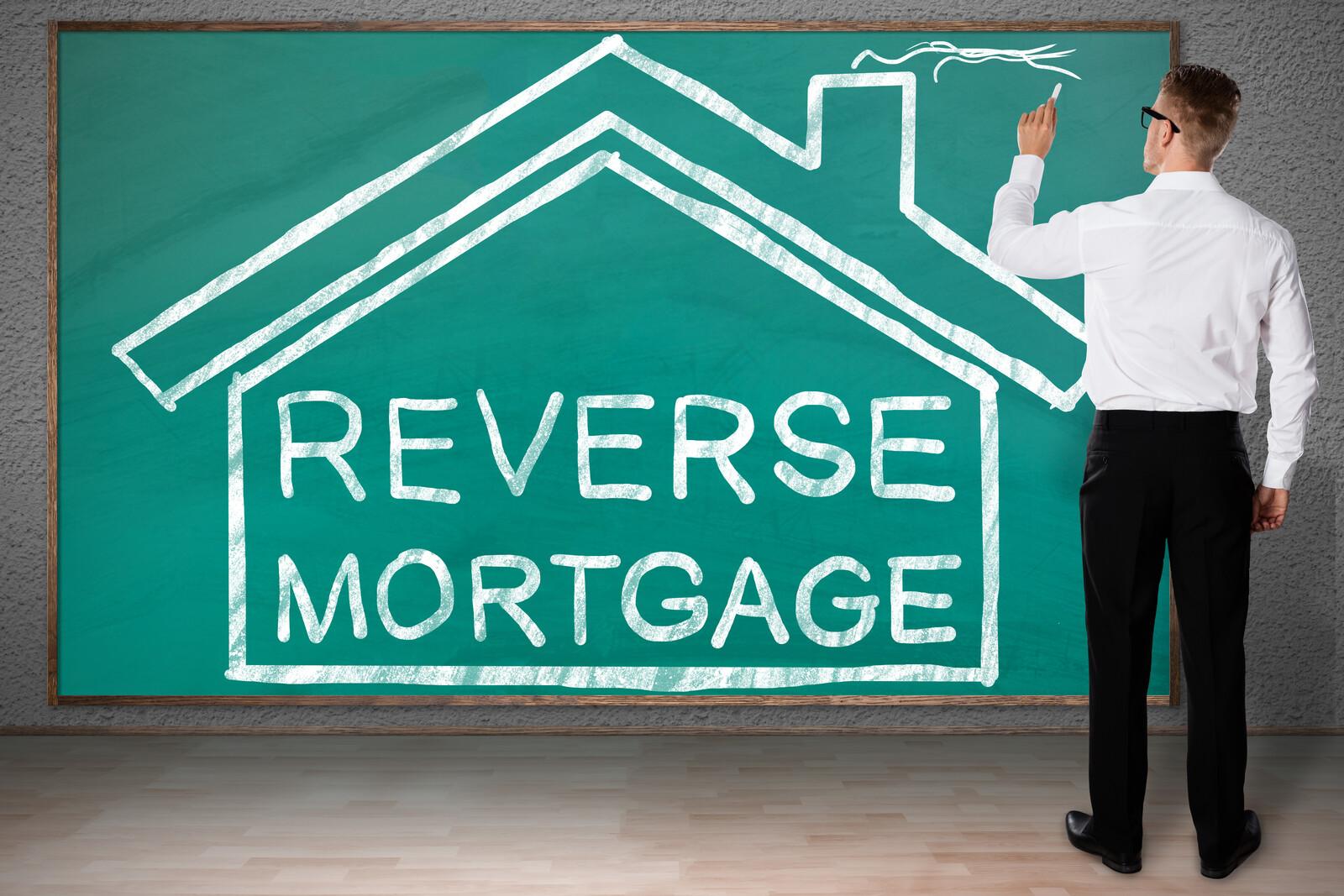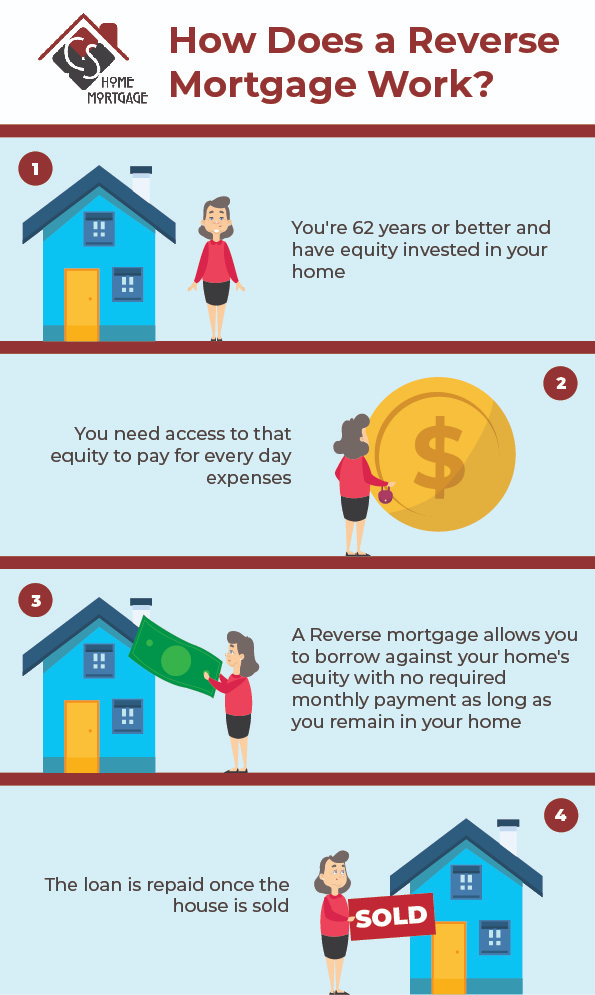The Process Involved When You Decide to Purchase Reverse Mortgage
The Process Involved When You Decide to Purchase Reverse Mortgage
Blog Article
Unlock Financial Flexibility: Your Overview to Buying a Reverse Home Mortgage
Understanding the ins and outs of reverse mortgages is essential for property owners aged 62 and older looking for financial flexibility. This one-of-a-kind financial tool makes it possible for seniors to take advantage of their home equity, transforming it right into accessible money for numerous demands, from healthcare to way of life improvements. Nonetheless, browsing the eligibility requirements, advantages, and prices can be complicated. As you consider this choice, it is vital to comprehend not just exactly how it works however also the ramifications it might carry your monetary future. What are the key factors you should weigh prior to making such an impactful choice?
What Is a Reverse Home Mortgage?

The basic appeal of a reverse home loan depends on its potential to improve economic flexibility during retired life. House owners can use the funds for different functions, consisting of medical expenses, home enhancements, or daily living prices, hence giving a safeguard during a critical point of life.
It is necessary to understand that while a reverse mortgage enables boosted cash money circulation, it additionally decreases the equity in the home in time. As rate of interest accumulates on the impressive financing equilibrium, it is vital for potential borrowers to thoroughly consider their long-lasting monetary plans. Consulting with a monetary consultant or a reverse home loan specialist can offer important insights into whether this option aligns with a person's economic objectives and conditions.
Qualification Demands
Comprehending the eligibility requirements for a reverse mortgage is vital for homeowners considering this economic alternative. To certify, candidates have to go to least 62 years old, as this age standard permits senior citizens to gain access to home equity without monthly home mortgage settlements. Additionally, the property owner must inhabit the home as their primary dwelling, which can consist of single-family homes, specific condos, and made homes satisfying specific standards.
Equity in the home is one more necessary demand; property owners usually require to have a significant quantity of equity, which can be figured out through an assessment. The amount of equity readily available will straight influence the reverse mortgage quantity. Furthermore, candidates should show the ability to keep the home, including covering real estate tax, property owners insurance policy, and maintenance prices, guaranteeing the property stays in excellent condition.
Furthermore, possible borrowers need to undertake an economic assessment to assess their revenue, credit rating, and general economic scenario. This assessment helps loan providers establish the candidate's ability to meet continuous commitments related to the residential property. Fulfilling these needs is crucial for securing a reverse mortgage and guaranteeing a smooth monetary shift.
Advantages of Reverse Home Loans
Many benefits make reverse home mortgages an attractive alternative for seniors seeking to enhance their monetary adaptability. purchase reverse mortgage. One of the primary advantages is the ability to convert home equity right into money without the demand for month-to-month home mortgage payments. This feature allows elders to accessibility funds for different needs, such as clinical expenditures, home enhancements, or daily living prices, consequently relieving economic anxiety
In addition, reverse home loans offer a safeguard; senior citizens can proceed to stay in their homes for as long as they meet the car loan needs, fostering stability during retired life. The proceeds page from a reverse home mortgage can likewise be used to delay Social Safety and security advantages, potentially resulting in higher payments later on.
Furthermore, reverse home mortgages are non-recourse finances, indicating that borrowers will never ever owe greater than the home's value at the time of sale, protecting them and their successors from financial responsibility. The funds received from a reverse home mortgage are generally tax-free, including another layer of monetary alleviation. Generally, these advantages placement reverse home loans as a sensible service for elders seeking to enhance their economic situation while preserving their valued home environment.

Prices and Fees Entailed
When considering a reverse home loan, it's vital to know the different prices and charges that can influence the total financial picture. Understanding these costs is vital for making an educated choice concerning whether this economic item is appropriate for you.
Among the key expenses related to a reverse home loan is the source charge, which can differ by loan provider however normally ranges from 0.5% to 2% of the home's assessed worth. Additionally, homeowners should anticipate closing costs, which may include title insurance policy, assessment charges, and credit score record costs, commonly totaling up to a number of thousand dollars.
An additional significant expense is mortgage insurance policy costs (MIP), which secure the loan provider against losses. This cost is generally 2% of the home's value at closing, with an ongoing yearly costs of 0.5% of the staying car loan equilibrium.
Finally, it is essential to consider recurring expenses, such as real estate tax, home owner's insurance coverage, and maintenance, as the consumer stays in charge of these expenditures. By thoroughly assessing these expenses and fees, home owners can better assess the monetary implications of going after a reverse home mortgage.
Steps to Start
Getting going with a reverse mortgage includes numerous essential actions that can aid streamline the procedure and guarantee you make informed decisions. Initially, analyze your financial circumstance and identify if a reverse home mortgage straightens with your long-term goals. This includes assessing your home equity, present financial debts, and the need for added revenue.
Following, research various loan providers and their offerings. Try to find trustworthy institutions with positive reviews, transparent fee structures, and competitive rates of interest. It's vital to compare conditions and terms to discover the very best fit for your requirements.
After choosing a loan provider, you'll need to complete a detailed application process, which generally requires documentation of income, properties, and property information. Participate in a therapy session with a HUD-approved counselor, who will give understandings right into the ramifications and responsibilities of a reverse mortgage.
Verdict
Finally, reverse home loans provide a practical option for seniors seeking to boost their read this monetary stability throughout retired life. By converting home equity into obtainable funds, house owners aged 62 and older can attend pop over here to various economic requirements without the pressure of monthly payments. Comprehending the ins and outs of qualification, benefits, and associated costs is crucial for making notified decisions. Mindful consideration and preparation can result in improved lifestyle, guaranteeing that retired life years are both safe and meeting.
Understanding the ins and outs of reverse mortgages is vital for homeowners aged 62 and older seeking monetary liberty.A reverse mortgage is a monetary item designed mostly for home owners aged 62 and older, allowing them to convert a section of their home equity right into cash - purchase reverse mortgage. Consulting with a monetary expert or a reverse home mortgage professional can supply beneficial insights into whether this option lines up with a person's monetary objectives and circumstances
Additionally, reverse home loans are non-recourse finances, meaning that borrowers will never owe more than the home's value at the time of sale, safeguarding them and their beneficiaries from monetary obligation. Generally, these advantages setting reverse home loans as a functional remedy for elders looking for to enhance their economic circumstance while maintaining their cherished home environment.
Report this page